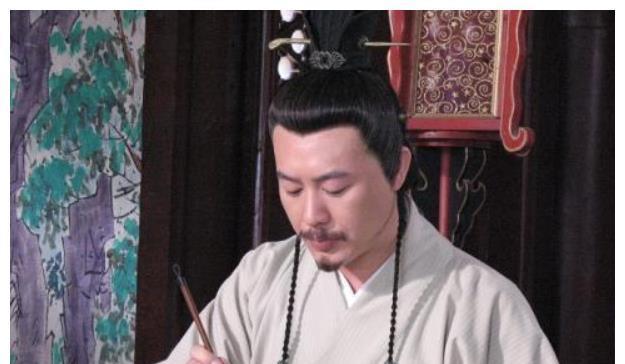One of the main ways for modern people to understand history is to read the history books written by the ancients. The ancient history books and classics have become a bridge between people and the ancient times. However, objectively speaking, ancient history books sometimes do not fully reflect the true face of historical facts.

Because the compilation of ancient history books mostly follows the basic principle of "the later dynasties compiled the history of the former dynasty", for example, when Ouyang Xiu compiled the "New Book of Tang" in the Song Dynasty, more than 400 years have passed since the establishment of the Tang Dynasty, and more than 100 years have passed since the end of the Tang Dynasty.
In contrast, there is another way to understand history more clearly and accurately. The cultural relics excavated from ancient tombs often preserve some important historical information such as the life deeds of the tomb owner and the style of the times at that time, which can be used as the first-hand original material for studying the history of a certain dynasty, which is more credible and true than the historical records, and also has more precious historical value.
Among the warriors of the Three Kingdoms era, the most famous and the most influential on future generations was Guan Yu. Guan Yu's loyalty, courage and military prowess have been vividly displayed and fully interpreted in the history book "Romance of the Three Kingdoms" and the novel "Romance of the Three Kingdoms", and posterity has been revered as "Martial Saint", guandi temples throughout China's urban and rural areas, and even overseas Chinese settlements are not uncommon, which shows the great influence.
The most representative battle of Guan Yu's life was the Battle of Fancheng, which broke out in the summer of Jian'an in the summer of the 24th year. At the beginning of that year, Liu Bei sent a large army to compete with Cao Cao for Hanzhong, and the battle was fierce. In order to cooperate with Liu Bei, Guan Yu, who was stationed in Jingzhou, sent troops from Jingzhou to attack Cao Wei, and the Wei state of Xiangyang and Fancheng were first attacked by Guan Yu.
Seeing that Fancheng's defenders Cao Ren and Man's strength could not be supported, Cao Cao urgently dispatched reinforcements, and the general was forbidden to take command, and Hao Hao came to the rescue, and the two sides formed a confrontation outside Fancheng. In the course of the confrontation, Guan Yu "flooded the Seventh Army", captured the forbidden Pound, completely annihilated Cao Cao's rescue troops, and reached the peak of his lifelong military career.
For a long time, historians have been controversial about Guan Yu's "Flooded Seven Army" battle, and some people believe that the battle of the "Flooded Seven Army" was planned by Guan Yu from beginning to end, and it was he who took the initiative to open the Hanshui levee and destroyed the Cao Army with the "water attack strategy". However, another view is that the "flooded Seventh Army" was completely an accident, the Hanshui near the battlefield was flooded due to heavy rainfall, cao jun was caught off guard by the disaster, and Guan Yu had no half-cent relationship, Guan Yu completely picked up a bargain, relying on the help of god to achieve his first name.
During the Qianlong period, an ancient tomb from the Three Kingdoms era was found in the Jingxiang area, and the owner of the tomb was The Cao Wei warlord Lü Chang. Lü Chang ( Lü Chang ) , a native of Nanyang , served as a general of Cao Wei Pingdi , ZhangLing Taishou , and was given the title of Marquis of Guannei , who had long guarded Xiangyang , and personally participated in the defense of Xiangyang and Fancheng against Guan Yu. In Lü Chang's tomb, an epitaph " Henghai General Lü Jun Inscription " was found " , which mentions the Battle of Fancheng in Xiangyang.
The "Inscription of the Henghai General Lü Jun" mentions that in the twenty-fourth year of Jian'an, during the period when Lü Changzhen was defending Xiangyang, Guan Yu led a large army to attack, "Hui Shu made Guan Yu rampant as a Kou", Lü Chang held the city head day and night, organized soldiers Ding Minfu to repair the city pool, fought back desperately, and repeatedly repelled Guan Yu's attacks.
After the arrival of Yu Ban's reinforcements, it was the rainy season, and the neighboring HanShui suddenly flooded, "the flood overflowed, flooded Fancheng, Pingyuan Shiling, Wai Du Dive Tong, fierce generals riding, loaded with sinking and floating", a flood struck, as the main battlefield of the Fancheng area became a vast ocean, Yu Forbidden's soldiers were caught off guard, almost all washed away by the flood. The situation in Xiangyang City, where Lü Chang was located, was also critical, the city walls collapsed, people were panicked, and many people secretly went out of the city to surrender to Guan Yu. However, Lü Chang's heart was like an iron stone, and he vowed not to surrender, resolutely resisting, "in the face of difficulties, he was able to eliminate the treachery and rebellion, and survive alone", and finally saved Xiangyang for Cao Wei.
It can be seen from the "Henghai General Lü Jun Inscription" that Guan Yu was able to achieve the great victory of the "Flooded Seventh Army", which was completely an accident, and God helped Guan Yu to win this honor. If it were not for the flood of Han Shui, the hand of the deer who died was still unknown, and Guan Yu would not be as powerful and invincible as people imagined.
References: Romance of the Three Kingdoms, Quan Sanguowen, Inscription of General Lü Jun of Henghai